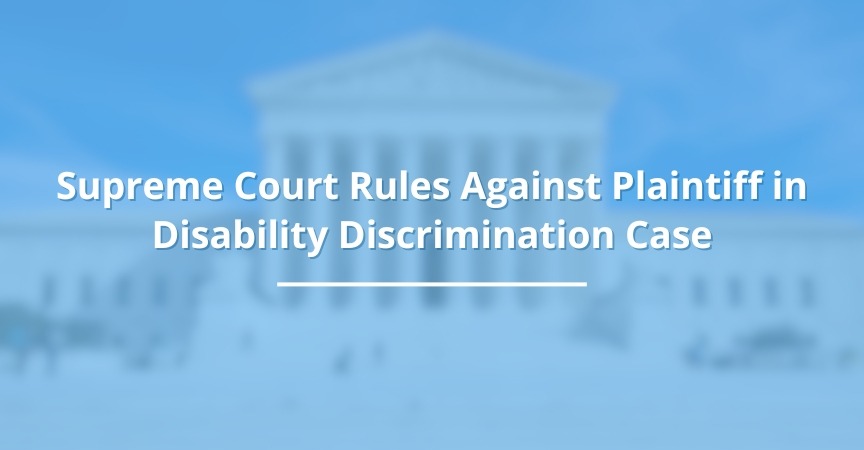Despite the many legal advancements over the last several decades to protect individuals with disabilities, discrimination remains a concern for many when navigating a world that doesn’t always accept differences. Discrimination can perpetuate many forms of emotional and social distress, but at what point does the law recognize emotional damages as it relates to individuals with disabilities?
In April 2022, the US Supreme Court ruled that emotional distress damages are not recoverable in a private action to enforce either the Rehabilitation Act of 1973 or the Affordable Care Act. This decision was demonstrated in Cummings v. Premier Rehab, in which the plaintiff alleged disability discrimination after contracting physical therapy treatment services from the defendant.
A precursor to the Americans with Disabilities Act, the Rehabilitation Act of 1973 prohibits discrimination based on disability by recipients of federal funding, ostensively protecting persons with disabilities who seek services funded or reimbursed with federal assistance. Jane Cummings, the plaintiff, who is legally blind and deaf, sought the services of Premier Rehab for chronic back pain. Cummings, who communicates primarily through American Sign Language, requested Premier Rehab provide an ASL interpreter for her therapy sessions. The facility declined the request suggesting there were other ways Cummings could communicate with her therapists.
In her lawsuit, Cummings alleged discrimination based on disability in violation of Section 504 of the federal Rehabilitation Act and Section 1557 of the Affordable Care Act, stating she had suffered humiliation and emotional distress as a result of Premier Rehab’s refusal to provide an interpreter. In this case, the court was faced with the decision to rule if these disability laws allowed compensatory damages to be available to the plaintiff.
Supreme Court Justice Breyer argued that the emotional disturbance endured by Cummings was the likely result of discrimination. Ultimately, the court ruled 6-3 in favor of Premier Rehab stating, “[t]he only compensable injuries that Cummings alleged Premier caused were ‘humiliation, frustration, and emotional distress.’” Further explaining the decision that emotional distress damages are not recoverable under either the Rehabilitation Act of 1973 or the Affordable Care Act. The ruling was later affirmed by the U.S. Court of Appeals for the Fifth Circuit.
Every day, special education students suffer emotional distress at the hands of peers, teachers, and administrators because of their disabilities. This ruling decides that those children, who are still developing physically and emotionally and are susceptible to great damage, will not be able to bring such a claim.
Education rights attorney Jennifer Chang works tirelessly to protect the rights of families and children with special needs in California public schools. Her practice maintains that those rights do not end when children age out of the public school system, and empowers families with the knowledge and understanding to advocate for themselves.
To read the case in full, click here.
